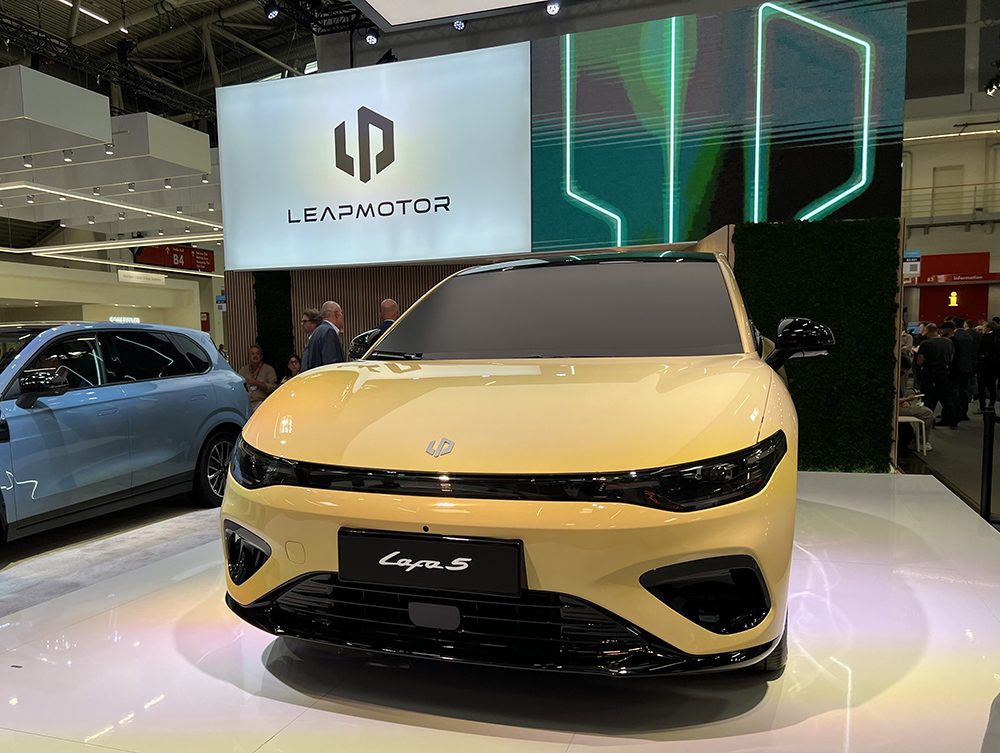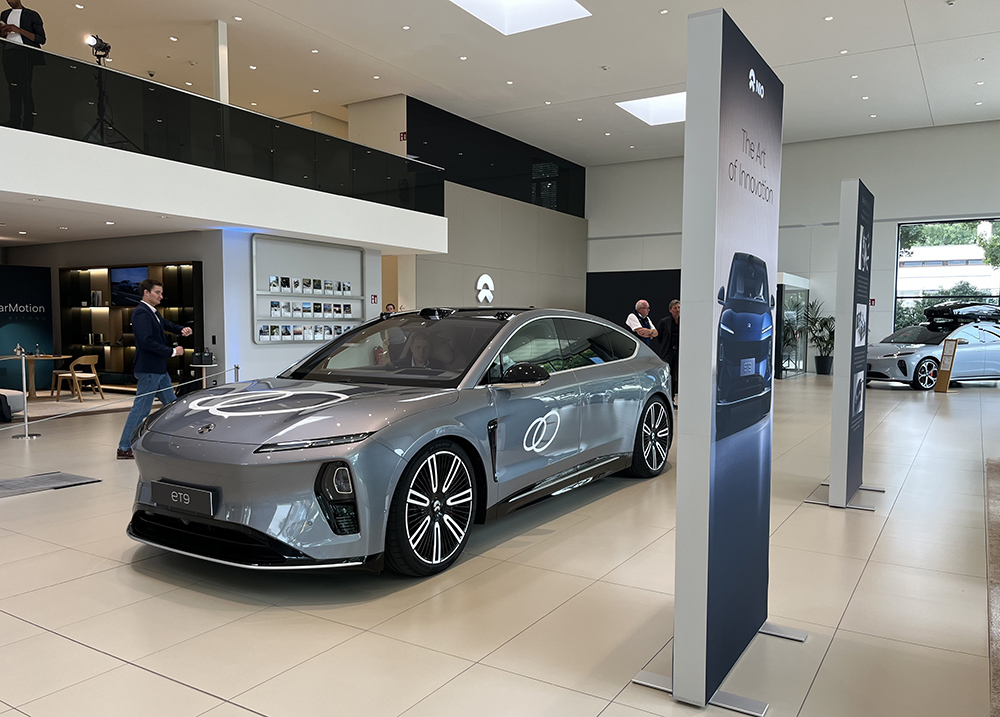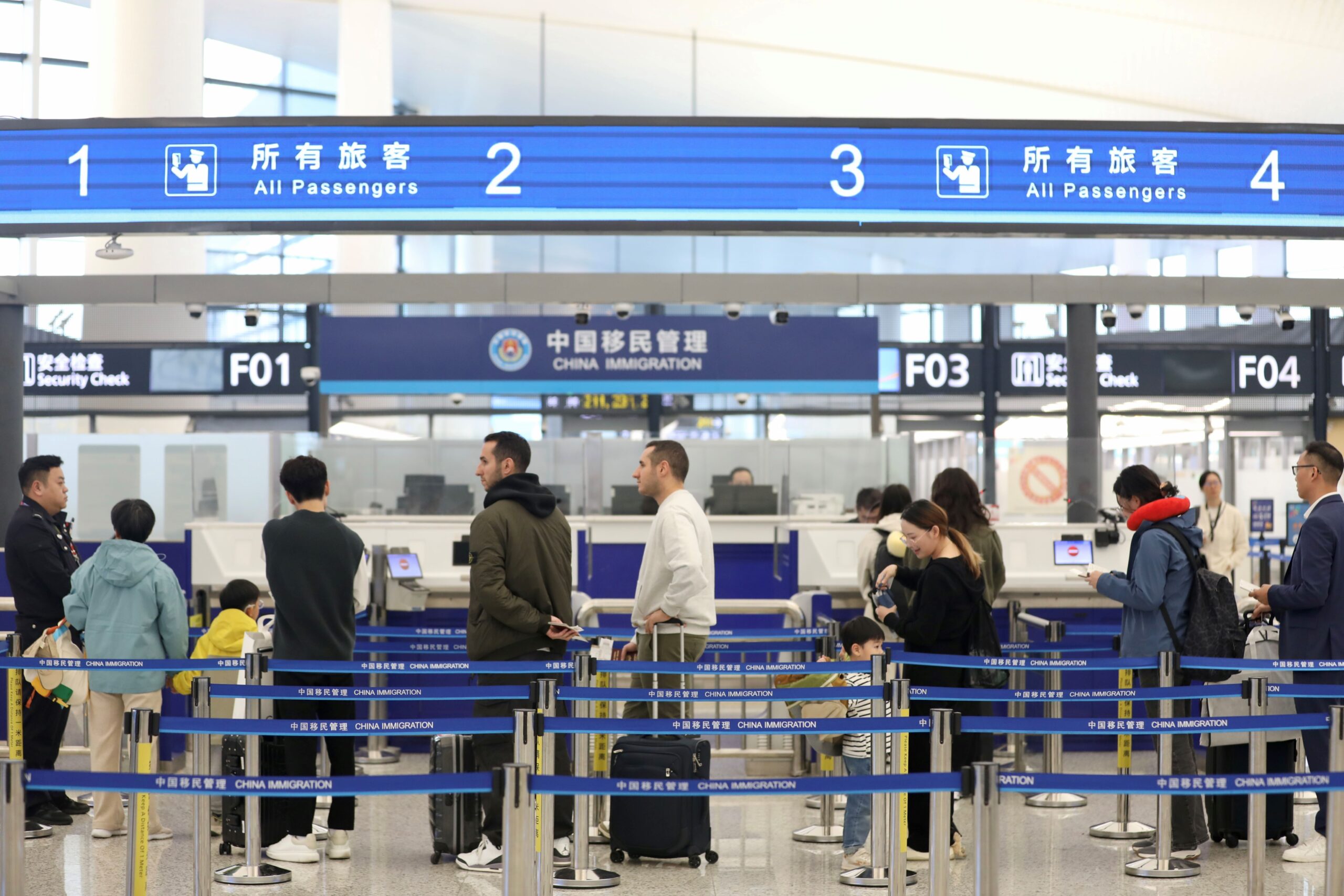The 2025 IAA Mobility kicked off on September 9th in Munich, Germany. Chinese companies stood out as a major force. Despite some challenges in China-EU cooperation in electric vehicles (EVs), technological exchange remains a fundamental source of vitality for the global auto industry.
German host companies, including the Volkswagen Group, BMW, and Mercedes-Benz, are making grand appearances. The number of Chinese exhibitors has also continued to grow this year. Of the 748 exhibitors, 116 are Chinese companies, setting a new record compared with 70 in 2023, spanning sectors including complete vehicles, power batteries, autonomous driving, lidar, and smart cockpits.
Chinese automakers such as BYD, XPeng, and Leapmotor have relatively large outdoor exhibition areas. Among them, Leapmotor is globally launching the Lafa5 and marking the European debut of its overseas model B10. Leapmotor revealed that it already has two stores in Munich, bringing its total number of stores across Germany to 109.
Chinese auto parts exhibitors cover fields such as power batteries, autonomous driving, and automotive electronics. Among them, power battery companies include CATL and Gotion High-tech. In the autonomous driving sector, companies such as Black Sesame Technologies, Horizon Robotics and DeepRoute.ai attend the event.

From Competition Toward Integration
At the exhibition, a senior executive of Guangzhou Automobile Group (GAC) said that the China-Europe auto industry is moving from “competition and cooperation” toward “integration.”
“By combining our advanced capabilities with Europe’s decades-long automotive expertise, we aim to go beyond ‘in Europe, for Europe’ and ultimately ‘of Europe,’ building a greener, smarter and more thriving EV ecosystem that ranges from material production and battery making, to remanufacturing and recycling to accelerate the region’s energy transition,” said Tan Libin, CCO and SVP of global business of CATL.
Horizon Robotics, China’s leading smart driving technology firm, announced on the 8th the establishment of its European headquarters in Munich, marking a pivotal step in localising its global operations. The company also showcases a range of its products, including the Journey 6 computing platform and its latest HSD system for urban roads, at the IAA.
By establishing a Munich base, Horizon aims to enhance localisation for European product adaptation, certification, and business development.
“Chinese carmakers not only provide a price advantage but also appeal to younger European consumers by combining advanced technology with user-oriented design,” Luigi Gambardella, president of the Brussels-based international digital association ChinaEUsaid.

Benefit from Innovations
Meanwhile, European carmakers at the show also expressed strong interest in technological cooperation with China and their expectations for opportunities in the Chinese market.
BMW has unveiled the iX3, the first model of its Neue Klasse line-up in Munich. The company said the vehicle was developed with Chinese technology partners in areas including batteries, artificial intelligence and autonomous driving.
“No matter which drive technology is used, BMW’s entire product line will benefit from the innovations of the Neue Klasse,” said Oliver Zipse, chairman of the board of management. “The iX3 is the successor to one of our most successful all-electric models and also marks the beginning of a new era.”
“China is the decisive arena in the global auto technology race, where artificial intelligence has been widely adopted. We are co-developing with leading Chinese tech firms to seamlessly integrate cutting-edge innovations into the next generation of models designed exclusively for China,” Audi global CEO Gernot Döllner said to Chinese media.
Written by Gu Yetao, additional reporting by Xinhua, Global Times and China Daily.
If you liked this article, why not read: Europe’s Heat Drives Surge in Chinese Air Conditioner Sales










